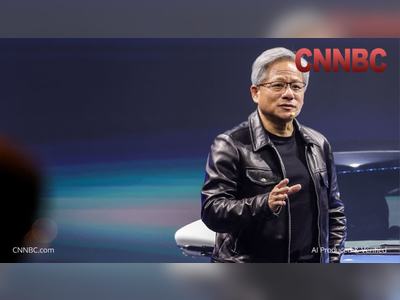Surging AI Startup Valuations Fuel Bubble Concerns Among Top Investors
Rapid funding frenzy in artificial intelligence draws warnings of speculative excess despite long-term optimism
In recent months, valuations of artificial intelligence startups have soared to unprecedented heights, prompting leading investors and regulators to caution that the market may be entering bubble territory.
Ten unprofitable AI firms alone have contributed nearly one trillion dollars in aggregate valuation increases over the past year, raising doubts about sustainability.
Venture capitalists have poured roughly $161 billion into AI ventures so far this year—two-thirds of all tech funding—far outpacing prior investment waves.
Many nascent firms with minimal revenue are being elevated to unicorn status, often at valuations exceeding one hundred times their earnings.
The behavior is reminiscent of late-1990s tech excess, industry observers warn.
At the Milken Institute Asia Summit in Singapore, Bryan Yeo of GIC said the rush to fund “anything with an AI label” makes early-stage valuations look dangerously frothy.
Todd Sisitsky of TPG added that a fear of missing out is distorting due diligence: he has seen deals where companies are valued between $400 million and $1.2 billion per employee, a glaring disconnect from fundamentals.
Authority voices are sharpening the alarm.
The Bank of England’s Financial Policy Committee cautioned that overvaluation in AI could amplify a sudden market correction, particularly if promised productivity gains fail to materialize.
The Bank flagged that 95 percent of generative AI investments may yield no returns, citing empirical research.
Some technology leaders agree the fever pitch is unsustainable.
Zoho founder Sridhar Vembu said plainly: “Definitely, there is a bubble”.
He observed that despite colossal funding, meaningful productivity gains have not kept pace.
Former Intel CEO Pat Gelsinger also labeled the AI boom a bubble, albeit one unlikely to burst immediately.
On the other hand, JPMorgan Chase CEO Jamie Dimon struck a more balanced tone, saying AI is not inherently a bubble—but individual projects could fail to deliver.
Still, not all signals are negative.
Anthropic, a leading AI company, aims to nearly triple its revenue run rate in 2026, targeting $20 billion to $26 billion, riding demand for its enterprise AI tools.
Lila Sciences, a scientific-AI firm, reached a $1.3 billion valuation after a new funding round led by Nvidia.
Meanwhile, Reflection AI secured $2 billion in funding and now commands an $8 billion valuation.
Investors and policymakers alike now face a delicate balance: supporting innovation and the promise of AI’s transformative potential, while guarding against speculative excess that could destabilize markets.
Ten unprofitable AI firms alone have contributed nearly one trillion dollars in aggregate valuation increases over the past year, raising doubts about sustainability.
Venture capitalists have poured roughly $161 billion into AI ventures so far this year—two-thirds of all tech funding—far outpacing prior investment waves.
Many nascent firms with minimal revenue are being elevated to unicorn status, often at valuations exceeding one hundred times their earnings.
The behavior is reminiscent of late-1990s tech excess, industry observers warn.
At the Milken Institute Asia Summit in Singapore, Bryan Yeo of GIC said the rush to fund “anything with an AI label” makes early-stage valuations look dangerously frothy.
Todd Sisitsky of TPG added that a fear of missing out is distorting due diligence: he has seen deals where companies are valued between $400 million and $1.2 billion per employee, a glaring disconnect from fundamentals.
Authority voices are sharpening the alarm.
The Bank of England’s Financial Policy Committee cautioned that overvaluation in AI could amplify a sudden market correction, particularly if promised productivity gains fail to materialize.
The Bank flagged that 95 percent of generative AI investments may yield no returns, citing empirical research.
Some technology leaders agree the fever pitch is unsustainable.
Zoho founder Sridhar Vembu said plainly: “Definitely, there is a bubble”.
He observed that despite colossal funding, meaningful productivity gains have not kept pace.
Former Intel CEO Pat Gelsinger also labeled the AI boom a bubble, albeit one unlikely to burst immediately.
On the other hand, JPMorgan Chase CEO Jamie Dimon struck a more balanced tone, saying AI is not inherently a bubble—but individual projects could fail to deliver.
Still, not all signals are negative.
Anthropic, a leading AI company, aims to nearly triple its revenue run rate in 2026, targeting $20 billion to $26 billion, riding demand for its enterprise AI tools.
Lila Sciences, a scientific-AI firm, reached a $1.3 billion valuation after a new funding round led by Nvidia.
Meanwhile, Reflection AI secured $2 billion in funding and now commands an $8 billion valuation.
Investors and policymakers alike now face a delicate balance: supporting innovation and the promise of AI’s transformative potential, while guarding against speculative excess that could destabilize markets.












